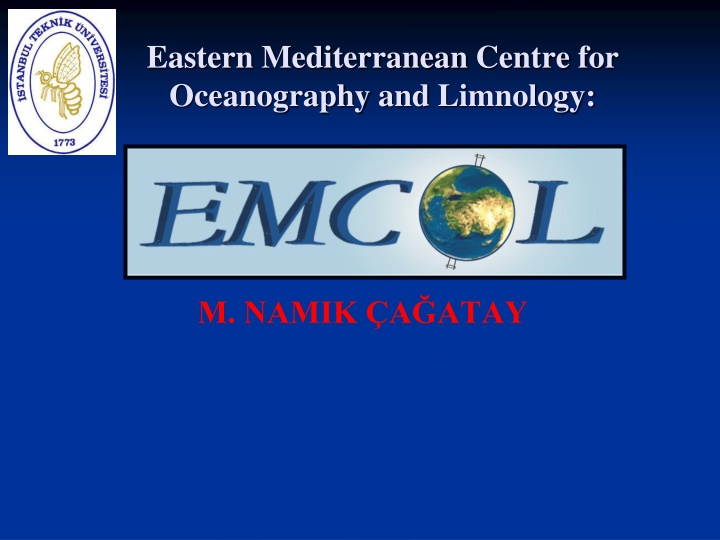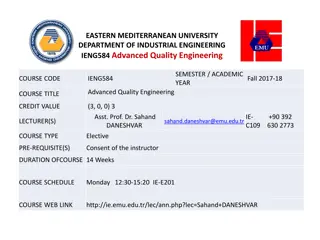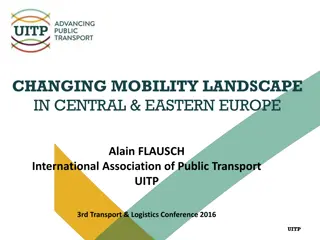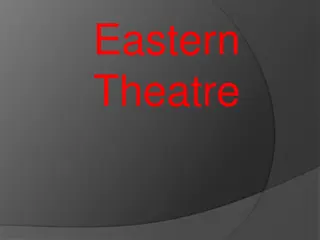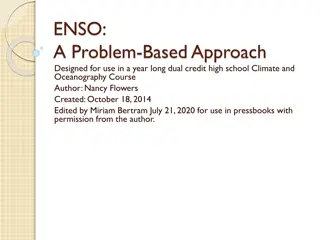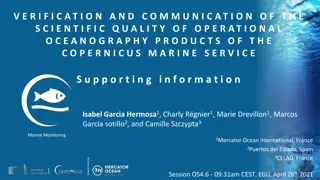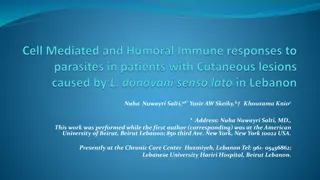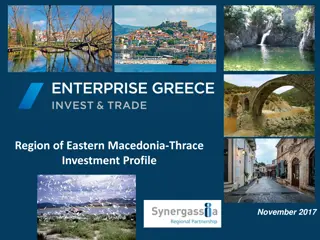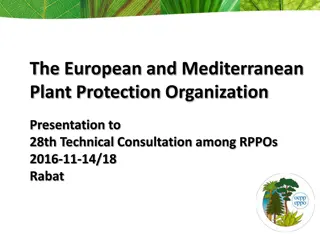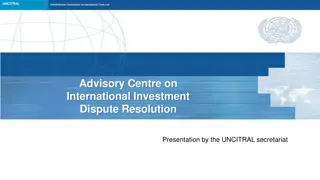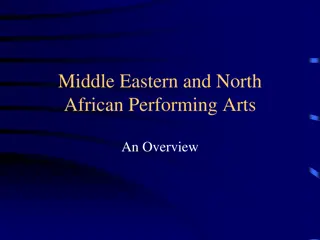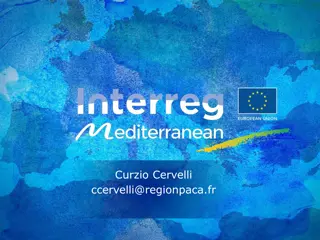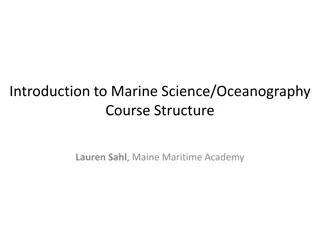Eastern Mediterranean Centre for Oceanography and Limnology (EMCOL): Research Focus and Facilities
EMCOL, led by M. Namik A. Atay, focuses on natural hazards, environmental changes, and earthquake risk assessment. Their research fields include earthquakes, submarine landslides, tsunamis, sea-level changes, climate change, and paleoclimatology. The center conducts fieldwork using various equipment for sediment sampling, core analysis, sedimentology, and geochemistry. EMCOL's facilities include core analysis laboratories, sedimentology laboratories, and a cold core repository. Research applications involve studying paleoshorelines, sea-level changes, and past earthquake recognition.
Uploaded on Sep 08, 2024 | 0 Views
Download Presentation

Please find below an Image/Link to download the presentation.
The content on the website is provided AS IS for your information and personal use only. It may not be sold, licensed, or shared on other websites without obtaining consent from the author.If you encounter any issues during the download, it is possible that the publisher has removed the file from their server.
You are allowed to download the files provided on this website for personal or commercial use, subject to the condition that they are used lawfully. All files are the property of their respective owners.
The content on the website is provided AS IS for your information and personal use only. It may not be sold, licensed, or shared on other websites without obtaining consent from the author.
E N D
Presentation Transcript
Eastern Mediterranean Centre for Oceanography and Limnology: M. NAMIK A ATAY
EMCOL Research Fields Natural Hazards and Environmental Change Earthquakes and earthquake risk assesment Submarine landslides Records of past tsunamis and tsunami risk assesment Sea -level changes Climate change - paleoclimatology Ecological changes
EMCOL Fieldwork Sub-bottom (Chirp) profiler and Differential GPS CTD probe ( with dissolved oxygen sensor) Figure 1. Mapping of active faults with sub-bottom (Chirp) profiler Fault line
EMCOL Fieldwork Sediment sampling Vibracorer Gravity corer (5 m) Kajak corer Livingstone piston corer (30 m rod) Ekmann dredge Drilling equipment for coastline (20 m ) Supporting Equipment Platform (4m x 3.5 m) & tripod Small boat and engine
EMCOLs Facilities Core Analysis Laboratory Itrax (XRF) Core Scanner Multi-Sensor Core Logger Figure 2
EMCOLs Facilities Sedimentology Laboratory Freeze-drier Laser Fritsch Particle Sizer Analysette Centrifuge for clay and fossil seperation Sample pounding
EMCOLs Facilities Geochemistry Figure 3. Total organic and inorganic carbon analysis in Marmara Sea sediment core ( a atay et al., 2004) Total Organic and inorganic carbon analysis with Shimadzu TOC Analyzer MD-2430 Sapropel layer Diagenetic carb.
EMCOL Cold Core Repository 210 horizontal shelves for 1 m cores Constant temperature monitoring and alarm system Wet Core Laboratory Core slicing Photography and lithological description Sampling Wet sieving
EMCOL Research Applications Paleoshorelines and Sea-level changes Figure 4.
EMCOL Research Applications Recognition of past earthquakes with the grain size analysis and dating with Cs-137 method Figure 5. McHugh, agatay et al. (2003)
EMCOL Research Applications Research of past hydrology and climate change records Figure 6. A core section from Marmara Sea Sapropel Freshwater-marine water transition, 12 kyr BP 14C age Freshwater period (period of oxygen depletion) a atay et al. (2000) Mar. Geol.
Research in EMCOL Records of past volcanic activities Vez v? Figure 7. a atay et al. (2004)
